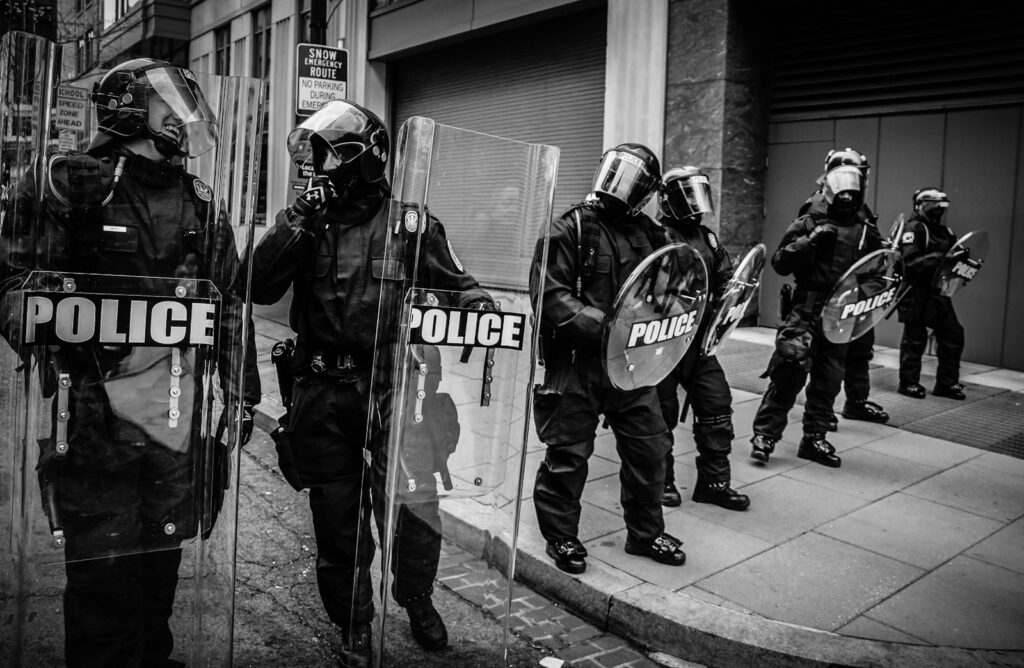- Applicants under the age of twenty-one must have at least sixty semester hours of college credit.
- For those with an active Texas Commission on Law Enforcement (TCOLE) license, the college credit requirement may be waived.
It’s important to note that preferred qualifications often include higher education, such as an Associate’s degree in Criminal Justice. Moreover, certifications such as TCOLE Instructor or Field Training Officer are highly regarded and can enhance a candidate’s profile. To officially begin their journey, applicants must meet the minimum qualifications set forth by TCOLE and successfully pass an entrance exam.
Physical Fitness Standards

Meeting the physical fitness standards is a critical step in the journey to becoming a police officer in Texas. Candidates must demonstrate excellent physical health and stamina to perform the essential functions of the job. The fitness requirements are designed to ensure officers can handle the physical demands of law enforcement, which include the ability to subdue resisting individuals, lift and carry moderate weights, and maintain activity for extended periods.
The specific fitness tests vary by department but generally include a combination of aerobic and strength assessments. For example, applicants may be required to:
- Complete a timed distance run
- Perform a set number of push-ups and sit-ups within a minute
- Pass a rowing test with a minimum percentile performance
These tests not only assess current fitness levels but also predict the applicant’s ability to undergo rigorous training and perform under physically challenging situations. It is advisable for applicants to maintain a regular fitness regimen and prepare for these tests well in advance of applying.
Background Checks and Psychological Assessment
The journey to becoming a Texas police officer includes a thorough background check and psychological assessment. These steps are crucial to ensure that candidates meet the high standards required for law enforcement positions.
- Candidates must successfully pass a psychological evaluation, which assesses mental stability and suitability for the pressures of police work.
- A comprehensive background investigation is conducted, covering areas such as driving history, criminal background, and credit history.
- Under certain circumstances, an agency may require a professional examination to determine a candidate’s physical or mental capabilities.
It’s important for applicants to be aware that any information obtained during these checks may be shared with potential employers. The process is designed to maintain the integrity and safety of the law enforcement community.
The Application Process for Texas Police Jobs

Steps to Apply
Securing a police job in Texas begins with a clear understanding of the application process. Firstly, identify the specific police department or law enforcement agency you wish to join. This could range from entry-level positions to specialized roles. Here are the steps to follow:
- Visit the official website of the police department or agency to find current job openings.
- Carefully review the job descriptions and requirements for positions such as Entry level police jobs in texas, police jobs dfw, or texas police chief jobs.
- Register or create an account on the job application platform if you’re a new user.
- Complete the application form with accurate personal and professional details.
- Upload any required documents, such as resumes, certifications, or identification.
- Submit your application within the given deadline and await confirmation for the next steps.
For those seeking lateral transfers, look for texas police departments hiring lateral transfers to find opportunities that recognize your previous experience. Aspiring officers in the Houston area should specifically search for police jobs houston to find relevant listings in that region.
Required Certifications and Training
Securing a police job in Texas, even for those seeking police jobs in Texas with no experience, necessitates obtaining certain certifications and completing specific training programs. The cornerstone of this process is the Basic Peace Officer Course (BPOC), which prepares candidates for the Texas Commission on Law Enforcement (TCOLE) licensing examination.
To begin, applicants must:
- Enroll in a TCOLE-approved training academy.
- Complete the mandated curriculum, which covers a wide range of law enforcement skills and knowledge.
- Pass the TCOLE Basic Peace Officer Licensing Exam, which is a critical step in becoming a certified peace officer in Texas.
It’s important to note that ongoing professional development is also required to maintain TCOLE certification, ensuring that officers stay current with the latest in law enforcement practices.
Navigating the Entrance Exam
Successfully navigating the entrance exam is a critical step in the application process for a police job in Texas. The exam assesses a range of skills and knowledge areas, including map reading, reading comprehension, and mathematics, among others. Here are some key points to consider:
- The exam typically covers reading comprehension, prioritization, probability, vocabulary, sentence clarity, and character comparison.
- A time limit is usually set for the exam, often around three hours.
- It’s highly recommended to prepare for the exam using study guides and practice tests. Resources such as the TCOLE Exam Prep and Deputy Sheriff Exam Preparation can be invaluable.
Remember, passing the entrance exam is just one part of the process. Applicants must also pass a psychological evaluation, physical examination, and a thorough background investigation, which includes checks on driving history, criminal background, and credit history.
Training and Education for Aspiring Officers

Police Academy Training Overview
The journey to becoming a Texas police officer invariably passes through the gates of a police academy. Here, cadets undergo rigorous training that equips them with the skills necessary for law enforcement duties. Police cadet jobs near me offer a glimpse into the opportunities available for those starting their careers. The Basic Peace Officer Course (BPOC) is a staple of police academy training, providing both classroom instruction and practical field experience.
Key components of the academy training include:
- Mastery of Texas law and police procedures
- Physical conditioning and defensive tactics
- Proficiency in firearms and emergency vehicle operation
Upon successful completion of the academy, cadets must pass the TCOLE Licensing Examination to become certified peace officers. This certification is a testament to the cadet’s readiness to uphold the law and serve the community.
TCOLE Licensing Examination
Passing the TCOLE Licensing Examination is a pivotal step for those seeking to become certified peace officers in Texas. This exam assesses a candidate’s knowledge and skills necessary for entry-level law enforcement duties. To sit for the exam, applicants must:
- Complete the required coursework or training at an approved academy.
- Apply through the TCOLE to take the examination.
- Meet all eligibility criteria, including a clean criminal record and a valid Class “C” Driver’s License.
Successful completion of the TCOLE exam is mandatory for all prospective officers, as it is a testament to their readiness to uphold the law and serve the community. It’s important to note that some departments may allow candidates to challenge the TCOLE exam and complete the required training within a specified period from the date of hire.
Specialized Training and Certifications
Beyond the foundational training, Texas law enforcement officers have the opportunity to pursue specialized training and certifications that enhance their skills and career prospects. Specialized training can range from SWAT and K-9 units to cybercrime and forensic analysis, providing a diverse array of paths for officers seeking to refine their expertise.
Officers may also seek certifications that are highly regarded within the field, such as becoming a TCOLE Instructor or a TCOLE Field Training Officer. These certifications not only signify a higher level of proficiency but also open doors for leadership roles and specialized assignments.
The Texas Tactical Police Officers Association (TTPOA) offers specialty courses that include topics like surveillance techniques, explosive breaching, and UAV operations. These courses are designed to equip officers with advanced tactical knowledge and are often a prerequisite for certain positions within a department.
Career Advancement and Opportunities

Continued Education and Professional Development
In the ever-evolving field of law enforcement, continued education and professional development are crucial for Texas police officers aiming to enhance their skills and advance their careers. Opportunities for further learning are abundant, ranging from specialized training programs to leadership courses.
- The 63rd School of Executive Leadership is an example of an intensive program that prepares senior law enforcement personnel for advanced roles. This eight-week course is designed to equip participants with the knowledge needed to navigate the complexities of modern law enforcement leadership.
- For those starting their careers, the Basic Police Officer Certification Course at Texas Southmost College provides a comprehensive foundation, covering over 700 hours of instruction as mandated by the state. This includes academics, fitness, and practical training.
- In-service training, such as the programs offered by Tarrant County College, supports the ongoing development of officers. These courses can be tailored to meet the specific needs of the law enforcement community, ensuring that officers remain up-to-date with the latest practices.
- The new Law Enforcement Training Center coming to UNT Dallas signifies a commitment to continuous improvement, offering development and continuing education for all officers, including the Dallas Police who will benefit from the proximity to the academy.
These educational pathways not only enhance the capabilities of individual officers but also contribute to the overall effectiveness and professionalism of Texas law enforcement agencies.
Advancement Paths within Texas Law Enforcement
Career progression in Texas law enforcement is marked by a variety of advancement paths, each offering unique opportunities for growth and specialization. Officers can ascend through the ranks, from patrol officer to detective, sergeant, lieutenant, and beyond, with each step providing increased responsibility and leadership roles.
- Patrol Officers may advance to specialized units such as SWAT, narcotics, or K-9 units.
- Detectives have the opportunity to focus on specific types of crime, such as homicide or cybercrime.
- Supervisory roles open up as officers gain experience, allowing them to lead teams and manage departments.
For those interested in furthering their careers beyond traditional police roles, positions within state and local government offer a chance to impact public service on a broader scale. Additionally, leadership transformations, such as those demonstrated by Captain Evans in Hitchcock, Texas, showcase the potential for officers to drive positive change within their organizations. The Texas Department of Criminal Justice also provides avenues for law enforcement professionals to transition into correctional roles, overseeing the state’s numerous prison units. Lastly, a career in criminal justice doesn’t have to end with retirement from the force; many officers pursue alternative career options, leveraging their skills and experience in new and rewarding ways.
Understanding the Role of University Police
University police departments play a crucial role in maintaining safety and security on campuses across Texas. Officers are tasked with a range of responsibilities, from enforcing laws to protecting the welfare of students, employees, and visitors. The University of Texas Police Department (UTPD), for example, offers competitive starting salaries for cadets and commissioned officers, reflecting the importance of their role in the university community.
To become a university police officer, candidates must often undergo a comprehensive training program. This includes field training, where recruits observe and assist experienced officers, and learning the specifics of the campus environment they will be protecting. Additionally, university police officers must meet the licensing standards set by the Texas Commission on Law Enforcement (TCOLE).
Career opportunities within university police departments are diverse, with positions ranging from entry-level cadets to specialized roles such as University Police Officer IV. These positions often require passing an entrance exam and successful completion of a field training program. For those interested in pursuing a career in university law enforcement, the following are key points to consider:
- Competitive starting salaries and opportunities for advancement
- Rigorous training and educational requirements
- A commitment to the safety and welfare of the university community
Salary and Benefits for Texas Police Officers

Starting Salaries and Pay Scale
The starting salaries for police jobs in Texas vary widely depending on the department, experience, and qualifications of the applicant. Entry-level positions typically offer competitive pay that can increase with additional incentives and stipends. For example:
- A starting salary might range from $42,257.28 annually to $60,736, with the potential to earn up to $82,500 with experience and incentives.
- Hourly rates can start at $21.11, reflecting the commitment to compensate officers fairly for their service.
- Additional incentive pay may include shift differentials, cellphone allowances, bilingual stipends, and TCOLE proficiency-level certification pay.
It’s important to note that these figures are subject to change and may differ across various Texas police departments. Aspiring officers are encouraged to research specific departments for the most accurate and up-to-date salary information.
Benefits and Job Security
Texas police officers enjoy a comprehensive range of benefits that contribute to their financial security and personal well-being. Health and welfare benefits are available immediately for many positions, including those in Dallas, ensuring that officers and their families are supported from day one. A robust 401(k) savings plan is often a key feature, with generous dollar-for-dollar matches up to a certain percentage, fostering a culture of saving for retirement.
In addition to retirement plans, officers typically receive a variety of insurance options, such as dental, disability, and AD&D insurance, which provide additional layers of security. Employee assistance programs are also common, offering support for various personal and professional challenges. Tuition reimbursement programs further demonstrate the commitment to ongoing education and career development within the law enforcement community.
The job security associated with police work in Texas is underscored by competitive salaries that reflect the importance of the role. With an average salary of around $66,360 per year, Texas police officers are compensated in a manner that acknowledges their service and dedication to the community.
Equal Opportunity and Employment Policies

In Texas, law enforcement agencies are committed to equal opportunity employment practices. This commitment ensures that all candidates are considered for police jobs based on their qualifications and merits, without discrimination.
- The Texas Commission on Law Enforcement (TCOLE) and individual departments, such as the Meridian Police Department, uphold policies that prohibit discrimination based on race, color, religion, sex, national origin, disability status, or any other protected characteristic.
- Employment opportunities at institutions like UT Dallas further emphasize an employee-friendly environment, offering comprehensive compensation and benefits packages to support their staff.
It’s important for applicants to be aware that all positions are considered security-sensitive. A criminal history investigation is standard procedure, and employment is contingent upon verification of credentials and the completion of any required checks. These policies are in place to maintain the integrity and safety of the workforce while promoting a diverse and inclusive environment.
Texas police officers enjoy competitive salaries and comprehensive benefits, making it a rewarding career choice. To learn more about the opportunities and advantages of serving in law enforcement in the Lone Star State, visit our website. We provide detailed insights into the compensation packages, including health insurance, retirement plans, and other perks that come with the job. Don’t miss out on the chance to discover a fulfilling career path—explore our ‘Job Openings‘ section now!
Frequently Asked Questions
What are the basic requirements to become a police officer in Texas?
The basic requirements include a high school diploma or GED, a valid Texas Driver’s License, and a valid Peace Officer Certification from the Texas Commission on Law Enforcement (TCOLE). Additionally, applicants must pass physical assessments, background checks, psychological evaluations, and an entrance exam.
Is there a physical fitness standard for Texas police applicants?
Yes, applicants must pass a physical assessment that includes running a mile in under 12:30 minutes, completing 20 pushups, and 20 sit-ups within a minute.
What kind of background checks are conducted for aspiring police officers in Texas?
Applicants are subject to a criminal history investigation, and employment is contingent upon verification of credentials and completion of the criminal history check.
How do I apply for a police job in Texas?
To apply for a police job, visit the official website provided in the job posting, register or log in to begin the application process, and ensure you meet all preferred requirements including holding a current TCOLE license.
What training is required after passing the TCOLE Licensing Examination?
After passing the TCOLE exam, recruits will attend a Basic Training Course at a police academy, which provides classroom and field instruction in basic police procedures, techniques, and laws. Additional department-specific training is also required.
What are the salary and benefits for a Texas police officer in training?
The salary for a police officer in training is commensurate with the position, and benefits include job security, equal opportunity employment policies, and other benefits as provided by the hiring institution.



